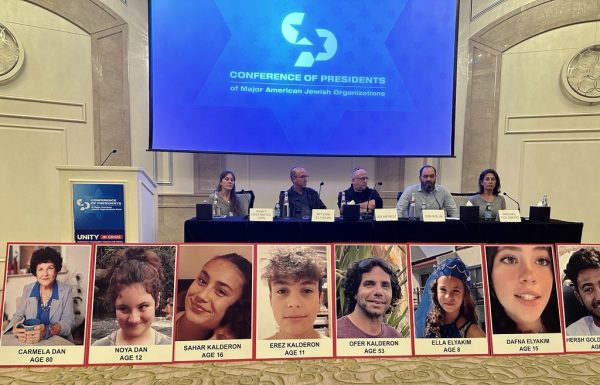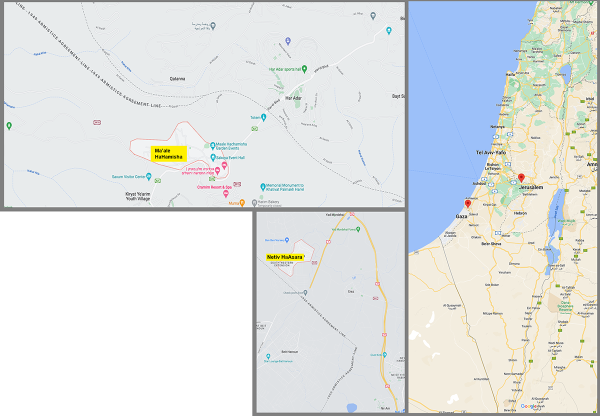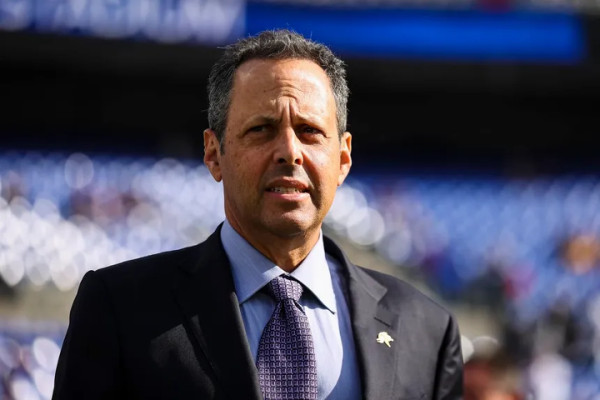By Doron Krakow
Our Cup of Sorrow Overflows
Some weeks are harder than others when it comes to the content of a Friday message. At times, it is a function of having more limited material to work with. This is not such a time. How can I capture the experiences of these last days in a way that does justice to them without making it 10 times as long? A simple inventory is no good either. There’s just too much that is worthy of meaningful explication.
I’ll begin with the personal. Not a day went by that I wasn’t in the company of people in mourning, and I had the opportunity to pay a shiva call on longtime family friends. Ami and Vered Mesika were neighbors of ours in Tenafly, New Jersey, and their son, Lee, grew up with my son, Yoni. The family returned to Israel when Lee finished middle school, and on October 7, Lee’s cousin, Adir, z’l, was murdered alongside his best friend, Eli z’l. They died attacking terrorists who were approaching the place in which they were hiding, allowing the three girls they were with to remain unnoticed, saving the girls’ lives. Heroes.
A day later, I was at the funeral of the daughter and son-in-law of dear friends from Ben-Gurion University. Professor Ilan Troen is a scholar of modern Jewish history and a pioneer in the field of Israel studies. He and his wife, Carol, are the parents of five children, one of whom lived on Kibbutz Holit, near the southern end of Gaza. Their daughter, Shachar, z’l, and her husband, Shlomi, z’l, were teachers, musicians, and passionate advocates for coexistence with their Palestinian neighbors, having established a fund at the kibbutz to support needs across the nearby border. They were murdered in their home when terrorists broke into their safe room. Shachar’s final act was to throw herself between the terrorists and her 16-year-old son, Rotem, taking nearly all the bullets herself; a single shot struck him in the abdomen as she fell on top of him. He survived—his mother having given him life a second time. Rotem, holding his belly as he delivered the first eulogy at their funeral, was, at once, resolute and broken.
Beginning Wednesday evening, I took part in a solidarity visit by the Conference of Presidents of Major American Jewish Organizations. More than 50 senior-level Jewish leaders were here, most arriving in Israel directly from a solidarity gathering held in Washington, D.C., the day before. They came to affirm for Israel and Israelis that the American Jewish community stands with them, united in our commitment and determination to provide every manner of support, encouragement, and advocacy—now and for as long as it takes for Israel to achieve victory over its bloodthirsty, savage enemies. Left and right. Religious and secular. American Jewry, in all its colorful diversity. United. United with Israel. It’s inspiring, actually, given the broad and sometimes deep ideological differences among us. But not today. Not now.
The significance of American Jewish solidarity means that Israel’s senior leaders took time to be in our company. We, of course, wanted to deliver our message of unconditional commitment, but their hands are more than full. Still, they met with us—President Herzog, Foreign Minister Cohen, Minister for Strategic Affairs Dermer, Prime Minister Netanyahu. Their messages, to a person, reflected both resolve and determination. Hamas will be eliminated in Gaza, and all those who had a hand in this horrific massacre will pay for what they’ve done. Meanwhile, they mourn, sharing stories of murdered children, torture, bodies burned beyond recognition. Hundreds of victims have yet to be identified; some may never be.

Meetings with senior political leaders were important but perhaps not so much so our time with families. We began our visit by meeting with representatives of three families whose loved ones are being held in Gaza. Their eight missing family members, ages eight to 80, include two sisters (eight and 15); a father and his two children (11 and 16); Carmela Dan, an 80-year-old grandmother and her 12-year-old granddaughter, Noya, who has autism and is hypersensitive to bright lights, loud noises, and touch.

Jon Polin and his wife, Rachel Goldberg, told the story of their son, Hersh, one of three survivors of a horrific assault on a shelter filled with perhaps 40 young concert-goes: Terrorists threw a dozen hand grenades through the entrance before those that managed to survive were machine-gunned where they lay. In a Hamas video, Hersh, his left arm blown off, was seen with two others who were being loaded onto a pickup truck. Jon found a measure of comfort and pride in seeing Hersh, notwithstanding his horrific injury, climb into the truck himself, his head held high.
These people are in anguish. I don’t know how they summon the strength to tell their stories, though they’d been in meeting after meeting—talking to anyone who’ll listen. Anyone who might lend a voice to the plea for information about their loved ones. Anyone who might be able to help influence those with power to move heaven and earth to bring them home. We hugged them. We cried with them. We promised them we will do what we can and will be relentless in our efforts. It’s all we can do. And it’s not enough. Not nearly enough. An hour after the meeting, we learned that the bodies of Carmela Dan, z’l, and little Noya, z’l, had been found and identified. Zichronam l’vracha | זכרונם לברכ | May their memories be for a blessing.
We visited Hadassah Hospital and met with wounded survivors—more heroes among them—and the extraordinary surgeons who helped put them back together following catastrophic injuries. Most who reached the specialists at Hadassah survived. Most. Back in August my wife, Janet, and I visited the same hospital to meet our grandson, David, who turned eight weeks old on Wednesday. The mood yesterday was something entirely different. Haunting. We lit memorial candles, offered prayers for the dead and wounded, and tried to give strength to those who are suffering—the injured, of course, but also the doctors, nurses, staff, and patients of every description, each one a mourner in his or her own right.
Our final meeting of the day was at Kibbutz Maale HaHamisha, just outside Jerusalem. The kibbutz is now home to the evacuated residents of Netiv HaAsara—a moshav along the Gaza border. Over dinner, we sat in small groups with survivors of the onslaught and heard from several of the moshav’s leaders. The moshav lost 20 members; a memorial video revealed their beautiful, smiling faces—men, women, and several children. The people taking refuge at Maale HaHamisha arrived with only the clothes on their backs. They have nothing. They want to go home, but they won’t go until their country and their government can guarantee their safety. Until the threat is eliminated. Their government abandoned them to a terrible fate and now must leave no doubt.

Before the evening concluded, we heard from one of my dear friends, Michal Uziahu, who, until recently, was head of the matnas (JCC) in the Eshkol Region, also neighboring Gaza. I know her as a charming and passionate advocate for the community they had built and continued to build. In the past, Michal had proudly shown us the impressive facilities and introduced us to staff and members who had made the matnas a platform for greater community and more vibrant life. During a 2022 visit to Houston as part of the JCC Global delegation to Mifgash, the JCC Movement’s executive leadership forum, her infectious energy and commitment captivated us all.
I didn’t know she would be there, and when we met, we hugged tightly for what seemed like a long time. What was there to say? I told her I loved her, and we would be there to help—not only as they find their way through mourning and devastation but at every step, thereafter, including when it comes time to rebuild. Michal—more softspoken, dark rings under her eyes, a shadow seemingly hovering around her, but no less passionate—shared her story and that of her community. They suffered and continue to suffer grievously as they bury their dead and pray for the missing. “These are not even my clothes,” she said. “We left everything behind. But please don’t think of us as heroes. This is what it means to be an Israeli. We’ll return to our homes and start again.”

Mark Wilf—chairman of the Board of Governors of the Jewish Agency for Israel (JAFI), president and co-owner of the Minnesota Vikings, and a proud and prominent Jewish leader—offered some closing words. Taking Michal by the hand, his voice breaking, he told her that he’d be with them. We all will. A moment later, the words of “Hatikvah” | “The Hope,” the national anthem of Israel and the Jewish people, filled the crowded room and touched our hearts.
Am Yisrael Chai | עם ישראל חי and Shabbat shalom | שבת שלום

Doron Krakow
President and CEO
JCC Association of North America

JCC Association of North America stands in solidarity with Israel and encourages support of Jewish Federations of North America’s special campaign to help the country meet its many needs at this difficult time.
Reader Interactions